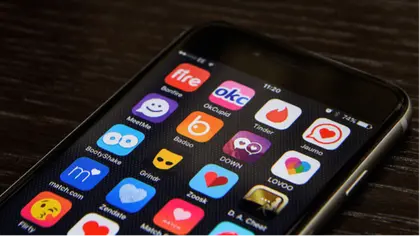She spends around two hours each day talking to the lonely Russian soldier on the front line. They flirt and, maybe, talk about a future together. In his efforts to woo and impress her he sends photos and videos – not of puppies or flowers – a video of him interrogating a Ukrainian POW and pictures of corpses. She seems impressed and asks for more.
In reality, she hates the soldier and hopes it won’t be long before he and his friends feature in another Telegram post.
JOIN US ON TELEGRAM
Follow our coverage of the war on the @Kyivpost_official.
An article in the UK’s Times newspaper gives details of how a Ukrainian risk-assessment and analysis firm, Molfar, is using its skills to support Ukraine’s war effort against Russia following the Feb. 2022 full-scale invasion. It focuses on how they are targeting lonely and desperate Russian soldiers from the occupied territories using dating sites and other social media.
In an interview with two young women using the pseudonyms “Angelina” and “Masha” they tell how AI-generated profile pictures which are supposed to be them have been posted on a number of dating apps popular with young Russian men which have lured dozens of unsuspecting Russian soldiers into their honeytraps since Putin’s full-scale invasion began.
As Maxim Tucker, the Times correspondent, talks to the women they look for candidates for an approach, ignoring anyone in civilian clothes but responding to those in uniform, particularly those who say they’re in the Donbas.

ISW Russian Offensive Campaign Assessment, January 14, 2025
Some of their virtual relationships have lasted almost as long as the war while others are quickly discarded when it becomes obvious that they are only interested in sex. “We tend not to bother with the horny ones,” Masha said, because they don’t tend to want to talk about anything else.
It may take dozens if not hundreds of communications before anything useful is revealed that can be passed on to the Ukrainian military. The examples in the Times article of the sort of intelligence they pick up include photos of a military identity which confirms a unit deployment, a video of a soldier that gives away his location, cries for sympathy about troops being killed or injured which confirms a successful Ukrainian strike.
Angelina said it was becoming harder to find suitable men from whom to get information as the Russian authorities crack down on the use of smartphones, but they’ll keep trying – it’s their way of contributing to the war effort.
You can also highlight the text and press Ctrl + Enter






